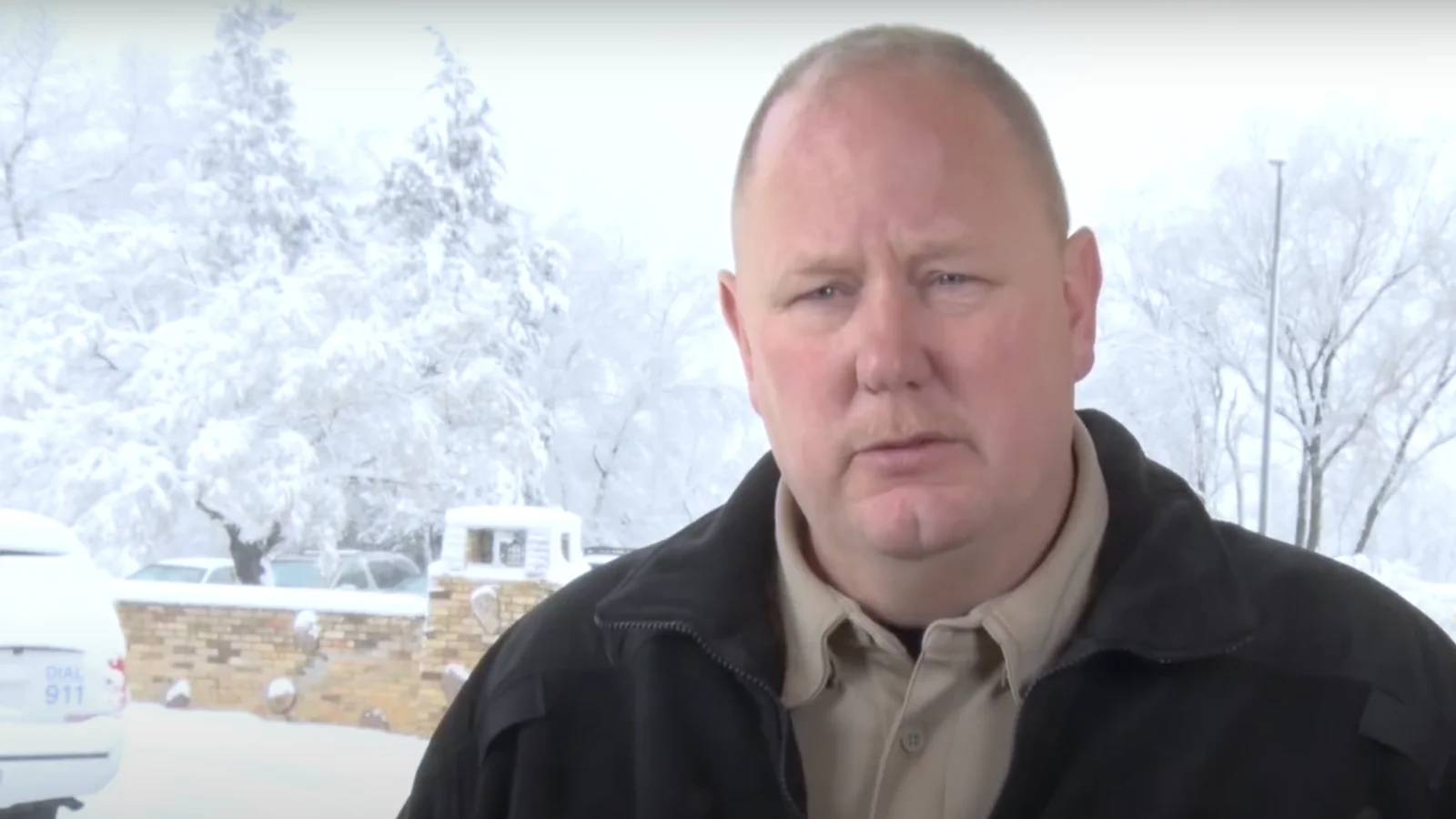Morton County Sheriff Kyle Kirchmeier | Youtube - Morton County
Morton County Sheriff Kyle Kirchmeier | Youtube - Morton County
On this day in October 2016, protests aimed at halting construction of the $3.8 billion Dakota Access Pipeline (DAPL) resulted in dozens of arrests including a Colorado woman who was charged with attempted murder for shooting a gun at a law enforcement officer.
The Morton County Attorney's Office charged Red Fawn Fallis with attempted murder, preventing arrest, carrying a concealed weapon, possession of marijuana, conspiracy to commit endangering by fire and engaging in a riot.
Fallis was accused of firing three shots from a revolver as officers were attempting to arrest her while moving her and other protestors from private property and removing an illegal roadblock on highway 1806, according to ND Response.
Fallis pleaded guilty to civil disorder and possession of a firearm and ammunition by a convicted felon and was sentenced to serve 4 years and 9 months in a federal prison, followed by 3 years of supervised release and was also ordered to pay a $200 special assessment, according to the U.S. Justice Department.
Fallis was released from a federal prison in Dublin, California, in September of 2020, according to Native News Online.
Fallis' arrest was one of more than 700 arrests during the DAPL protests that drew thousands of people to camp out in Morton County, North Dakota, according to the Associated Press.
MPR News reported that, over a period of several weeks, protesters were charged with offenses ranging from trespassing to disorderly conduct, felony reckless endangerment and inciting a riot, with a large number of those arrested being from out of state.
Public figures like Hollywood celebrities Mark Ruffalo and Leonardo DiCaprio also participated in the protests but were not among those arrested.
On certain days, the protests resulted in dozens of arrests, like on Feb. 1, 2017, when Morton County Sheriff's Department spokesman Rob Keller says, "A rogue group of protestors" trespassed onto private property, resulting in 76 arrests, according to the Guardian.
The criminal charges aren't the only problems that local authorities were left to deal with in the wake of the pipeline protests.
Source NM reports that the state of North Dakota is suing the federal government for $38 million in costs associated with policing and cleaning up following the demonstrations.
Attorneys for North Dakota have argued in court that the protests that occurred over 233 days "led to ‘frequent outbreaks of illegal, dangerous, unsanitary, and life-threatening activity on federal, state and private property.’”
According to MPR News, North Dakota Special Assistant Attorney General Seby, stated in court that the clean up of the camp following the protests “required a four-day cleanup of the camp and 600 bins to remove 9.8 million pounds of trash.”
Former Morton County Commissioner Cody Schulz, who is now the director of the North Dakota Parks and Recreation Department, testified in court that “beyond the drain on law enforcement, the protests caused a range of impacts on Morton County — everything from minor inconveniences like sluggish traffic to damage to private property,” Source NM reported.
The protests also resulted in a $300 million lawsuit being filed against Greenpeace by Energy Transfer Partners, the owner of the pipeline.
According to the Associated Press, the suit states that Greenpeace, “should be held responsible for trying to disrupt pipeline construction and damage the company’s reputation and finances.”
Disagreement over how to settle that lawsuit eventually led to the recent ouster of Greenpeace’s Executive Director Ebony Twilley Martin.
Former Greenpeace Chief Operating Officer Willem van Rijn told E&E News that “Twilley Martin ‘advocated a way in which the organization would settle for a minor amount of money so that we could fight another day,’” and that the “board vehemently disagreed.”
The lawsuit filed by Energy Transfer Partners in Morton County District Court is still pending and Greenpeace has launched a fundraising campaign to “raise awareness of the lawsuit.”
The $3.8 billion pipeline has been operating since June 2017.






 Alerts Sign-up
Alerts Sign-up